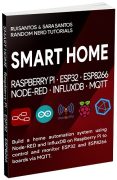In this post I’ll share with you a list of 9 biometric sensors Arduino compatible that you can use in your bioengineering experiments. These are great for hobbyist projects since most of them are easy to deal with.
Here’s the list:
1. Optical fingerprint reader

This is a cool and easy to use fingerprint reader. There are libraries and full documentation to help you get started with this module.
You can get one for approximately $15 (view on eBay).
2. Fingerprint scanner (GT511C1R)

Fingerprint scanning can be easy if you use this sensor (GT511C1R). It does all the complicated stuff such as reading and identifying the fingerprints with an optical sensor and a 32-bit CPU. It can store up to 20 fingerprints and is capable of 360º fingerprint recognition. You can download the fingerprint images from the device and read and write fingerprint templates and a database.
3. Pulse sensor

This sensor measures your heart beat. It is very easy to use with your Arduino, as it only requires one analog data pin, VCC and GND. The sensor can be easily powered up using the Arduino 5V pin. This sensor has an optical heart rate sensor with amplification and circuit for noise reduction, giving fast and reliable pulse readings.
To measure the heart rate, you just need to clip the sensor in your earlobe or fingerprint. There are an example code and a Processing sketch for visual data here.
You can get one for approximately $3 (view on eBay).
4. Galvanic skin response grove module

This module allows you to measure galvanic skin response by measuring the electrical conductance of the skin. The skin conductance changes accordingly to the amount of sweat on the skin.
The sweat glands are controlled by the sympathetic nervous system that can be aroused by strong emotions. So, strong emotions will result in more sweating on the skin, resulting in changes on the skin electrical conductance.
As the skin electric properties change with emotions, this kind of sensor is used in lie detectors (polygraphs) to detect changes in the person’s physiological state (view on eBay).
5. Myoware muscle sensor

This sensor is really cool and I had no idea it could be so cheap to control things by measuring muscle activity.
The myoware muscle sensor measures the electrical activity of a muscle, giving an output voltage between 0 and 5V (in case you’re powering up the sensor with 5V) depending on the amount of activity in a muscle.
This makes it possible to control stuff by contracting and relaxing the muscles. Isn’t that cool?
The sensor has a great design allowing you to attach biomedical sensor pads for easily connect your muscles to the Arduino.
For an Arduino sensor it may seem quite expensive (costs approximately $40), but what it allows you to do, definitely worth it.
6. Finger heart rate sensor

This finger heart rate sensor measures the pulse in your fingers by using an infrared IR LED and an optical transistor.
It easily interfaces with the Arduino using just one data pin.
You can get this sensor for approximately $2 (view on eBay).
7. e-Health shield

The e-Health shield can be used to gather real time biometric information from a patient. This shield allows you to monitor a wide variety of biometric information. The shield can use 10 different sensors: pulse, oxygen in blood, airflow, body temperature, ECG, glucometer, galvanic skin response, blood pressure, position and electromyography (muscle) sensor.
The information can be collected and sent to a cloud for permanent storage or to the phone or laptop by using Wi-Fi, 3G, Bluetooth, GPRS or ZigBee.
There are also applications for Android and iOS to easily see and analyse the results.
This shield is compatible with Arduino and Raspberry Pi.
8. MQ-3 alcohol sensor
The MQ-3 alcohol sensor can be used to detect alcohol concentration on your breath. So, it is the perfect sensor to make a breathalyzer.
The sensor is very easy to use: its output voltage changes accordingly to alcohol concentration.
You can get this sensor for approximately $2 (view on eBay).
9. TTP223B touch digital sensor

The TTP223B Touch digital sensor is like a pushbutton. It is a touch-sensing IC capacitive switch module. The sensor outputs LOW, except, when your finger touches the corresponding sensor position. In this case, the sensor outputs HIGH. If the sensor is not touched for 12 seconds, it switches to LOW again.
You can get this sensor for approximately $1 (view on eBay).
Wrapping up
Are you interested in using these sensors in your electronics projects?
Let me know by letting a comment in the comments section below.
If you like this post you’ll probably like the following:
- 9 Arduino Compatible Temperature Sensors for Your Electronics Projects
- 7 Arduino Compatible Displays for Your Electronic Projects
- 19 Awesome Robots You Can Build With an Arduino
Thanks for reading,
Rui and Sara








Nice Sensors. I have made a group of 8x8x4 1088 Greath. But this with the healt sounds moore interesting!
Too waik up in the morning and get figures on your living status! Yes.
I’m glad you found it interesting!
Thanks for reading,
Rui
Thanks Mr. Rui for your important updates. I will soon use one of these sensors
You’re welcome!
Thanks for the sensor summary,looks like some interesting biomedical applications
No problem Charlie.
Thanks for reading,
Rui
hey the article about various biometric sensors with arduino is awesome. keep exiting me
Thanks for your feedback!
Thanks for posting. Will likely use one of the fingerprint scanners as an addition to my nodemcu wifi garage door controller. Easy access from outside. The alcohol sensor looks handy also. Keep up the good work.
I liked your 9 biometric sensors article very much. It opens a host of ideas that become possible to integrate into projects. Thank you.
Ralph
Awesome! Thanks for reading,
Rui
Hi,
I am looking for a product that can be used to measure during realtime, say long distance running the various vitals. The eHealth Shield was interesting but I am unable to find it elsewhere. Is there a way to get it off the shelf?
Hi.
It seems it is no longer available in the link we had.
We updated the post with a new link.
Take a look at this URL and see if it has what you want: cooking-hacks.com/mysignals-hw-ehealth-medical-biometric-arduino-shield
I hope this helps.
Regards,
Sara 🙂
Great list! Please update and possibly notify me if you find a reasonably priced EEG (brain wave) module that is compatible with Arduino (or at least Raspberry Pi)
way cool! I particularly like the muscle switch!